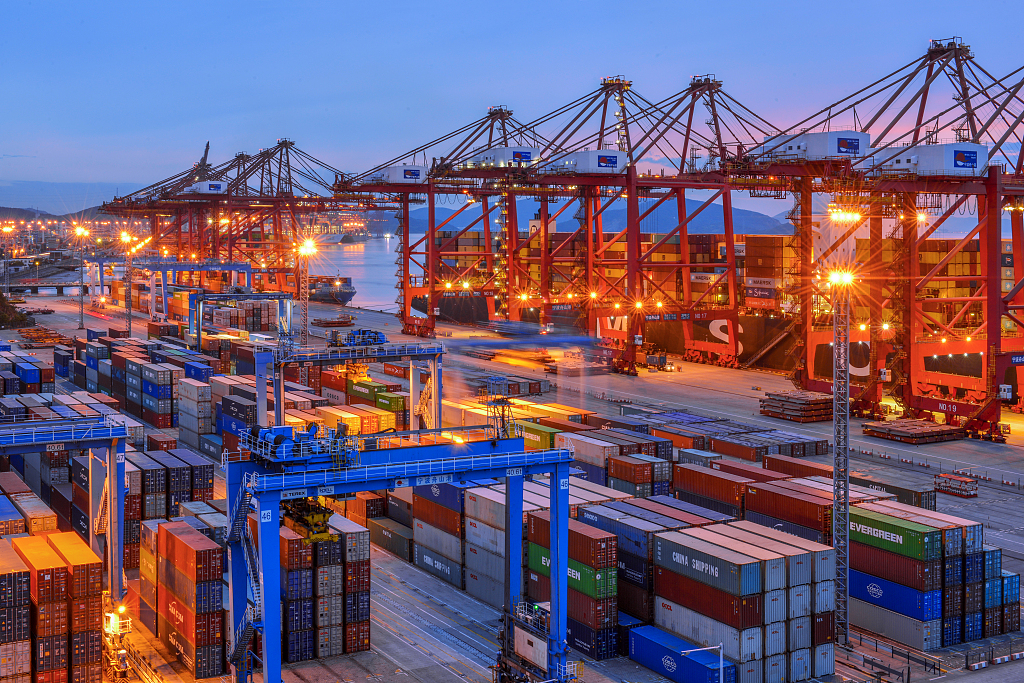Eight years on, BRI offers path to mutual gains
- By Tom Fowdy
 0 Comment(s)
0 Comment(s) Print
Print E-mail China.org.cn, December 10, 2021
E-mail China.org.cn, December 10, 2021

In 2013, China inaugurated the Belt and Road Initiative (BRI), an ambitious globally spanning infrastructure and connectivity scheme. Aimed primarily at the Global South, China seeks to use the program to spearhead hundreds of projects across multiple continents to accelerate economic growth, development, and shared prosperity by bringing nations closer together. Economists estimate the total value of projects to be up to nearly $4 trillion.
Eight years later, the BRI has been a great success, with many projects now completed across the globe. According to Refinitiv, there are over 2,631 BRI projects, amounting to $3.7 trillion. Key examples include the China-Pakistan Economic Corridor, the China-Europe Land-Sea Express Line, the China-Indochina Peninsula Economic Corridor, the China-Mongolia-Russia economic corridor, Port Piraeus in Greece, and so on. In addition, a total of 140 countries and 32 international organizations have signed more than 200 cooperation agreements with China.
A variety of means funds BRI projects. As Belt and Road Consultancy quotes: "To fully fund the total BRI project volume of estimated $4 trillion to $8 trillion, diverse funding channels such as BRI bonds, private capital investment, and public-private partnerships but also state-owned enterprise investment will be crucial for the success of the initiative." BRI cooperation is an active collaboration with countries, which is why it is so frequently described as "win-win" cooperation.
The Refinitiv study estimates that over $516 billion worth of BRI projects were completed in 2019, amounting to 22% of the proposed total. At the time of the report, another 1,989 projects were underway. Although Covid-19 caused a temporary pause in construction in 2020, projects continued to be completed this year and throughout 2020.
In the past week, two BRI projects that have been opened include Chongoene Airport in Mozambique and the China-Laos Railway. With the inauguration of more projects, concrete benefits can be brought to the countries involved. According to Refinitiv statistics, the overseas economic and trade cooperation zones built by Chinese enterprises in the BRI countries have created about 300,000 local jobs, with a total investment of more than $30 billion. In addition, trade between China and its BRI member countries crossed $6 trillion from 2013 to 2018, growing at an average annual growth rate of 4%.
Ultimately, the Belt and Road Initiative stands as an anchor of Global South solidarity and offers hope for the development of the world's countries to accelerate their economies, broaden their horizons and break out of the unequal economic global system. The BRI is a partnership of mutual gains, not a one-way train or zero-sum game. It is about working together to seek common progress and prosperity. It has yielded incredible success in transforming the economies of the countries involved in it. Hence, in the eight years since it was launched, China has invited countries across the globe to partner with it in constructing infrastructure and promoting trade in both the public and private sectors. As a result, it has driven global growth, connectivity and economic opportunity.
Tom Fowdy is a British political and international relations analyst and a graduate of Durham and Oxford universities. For more information please visit:
http://www.china.org.cn/opinion/TomFowdy.htm
Opinion articles reflect the views of their authors, not necessarily those of China.org.cn.
If you would like to contribute, please contact us at opinion@china.org.cn.






Go to Forum >>0 Comment(s)